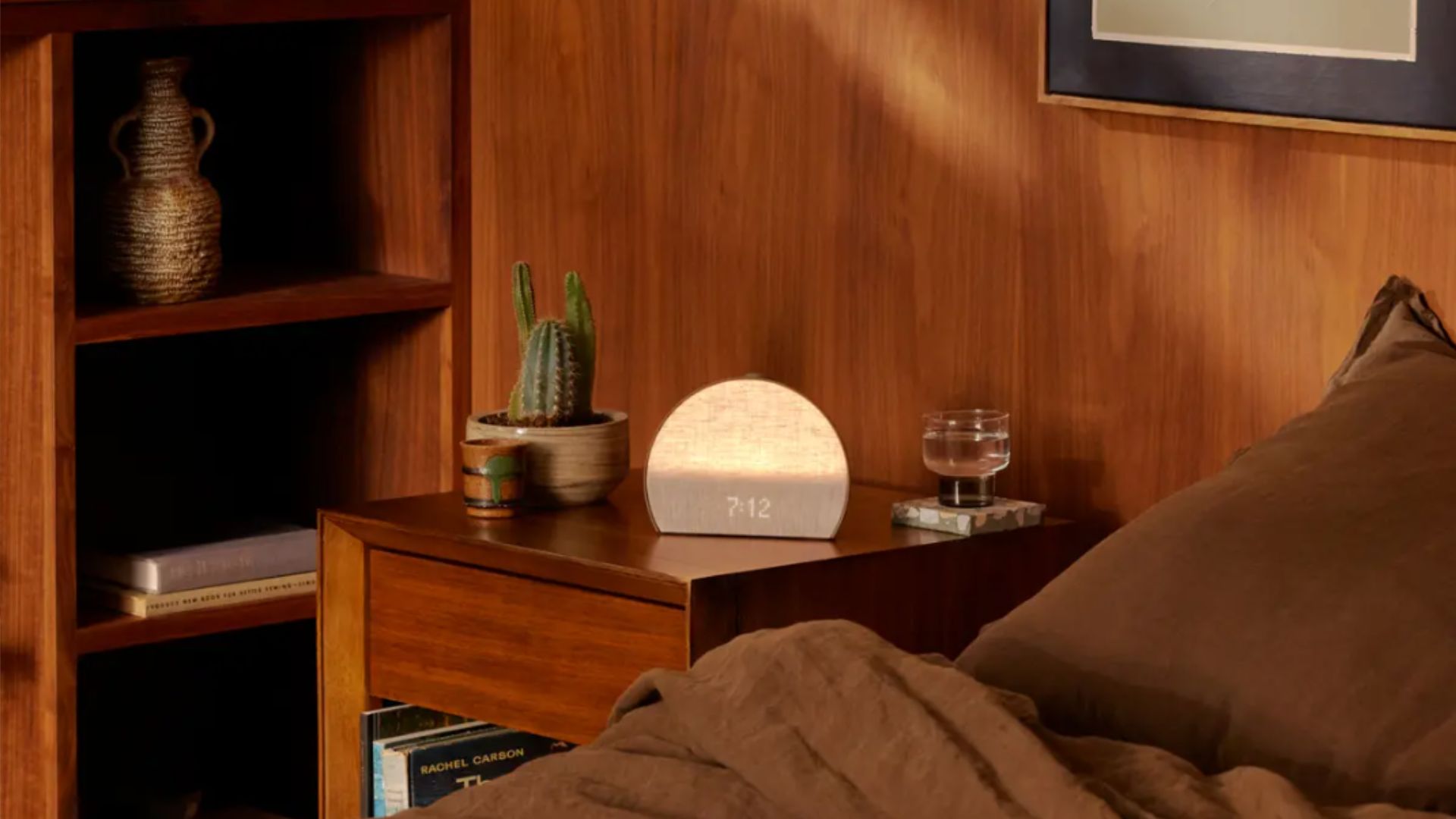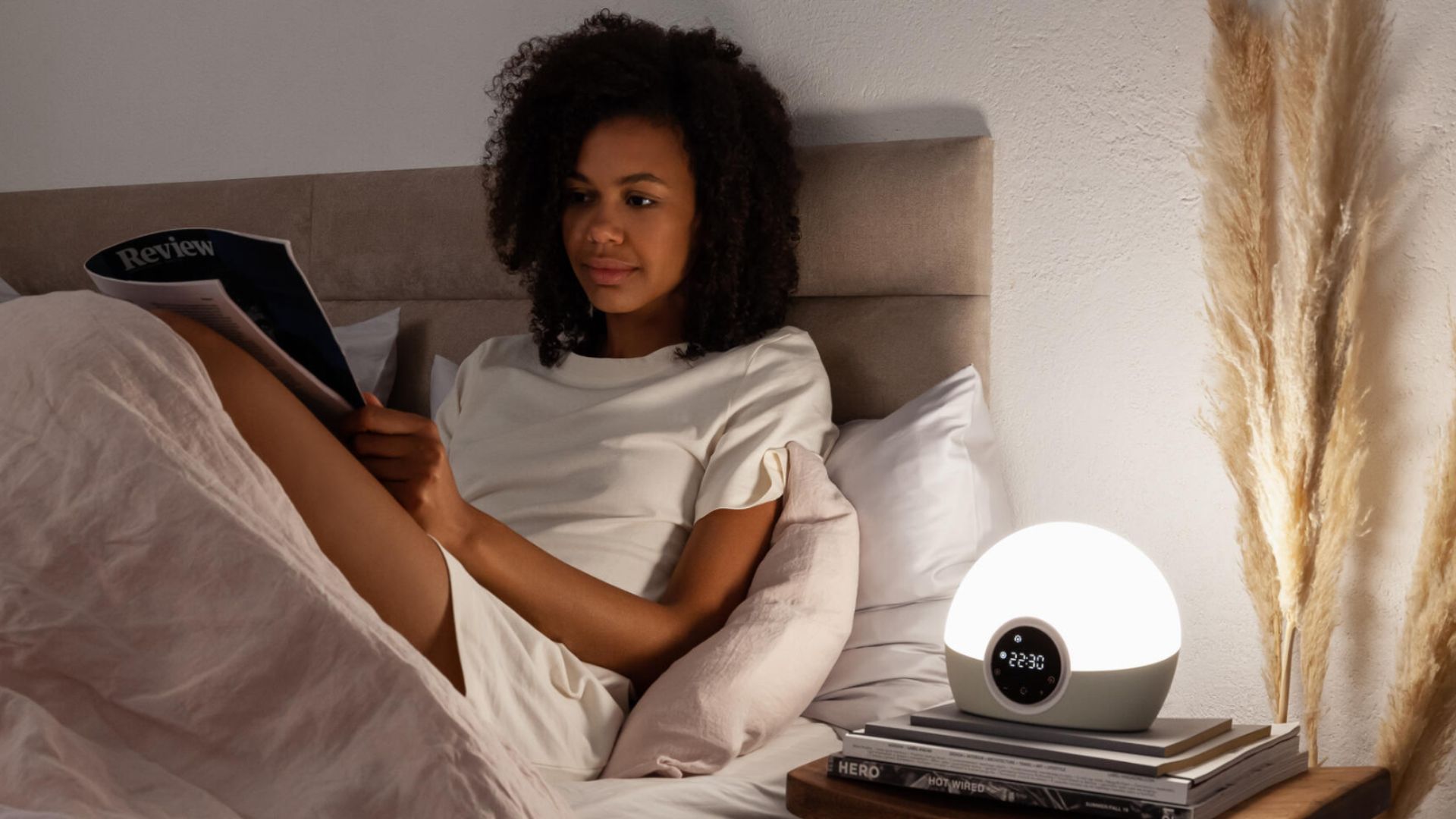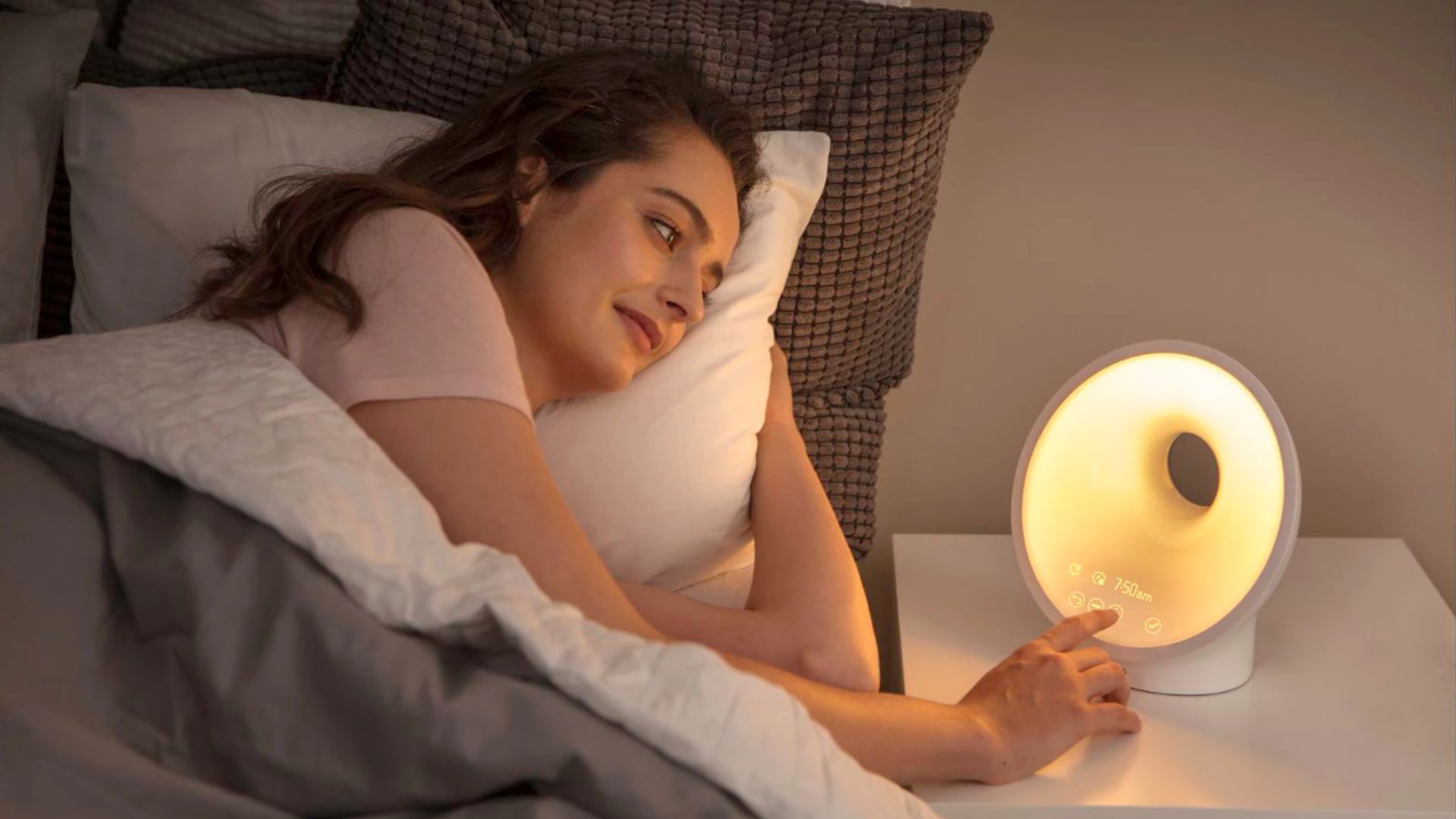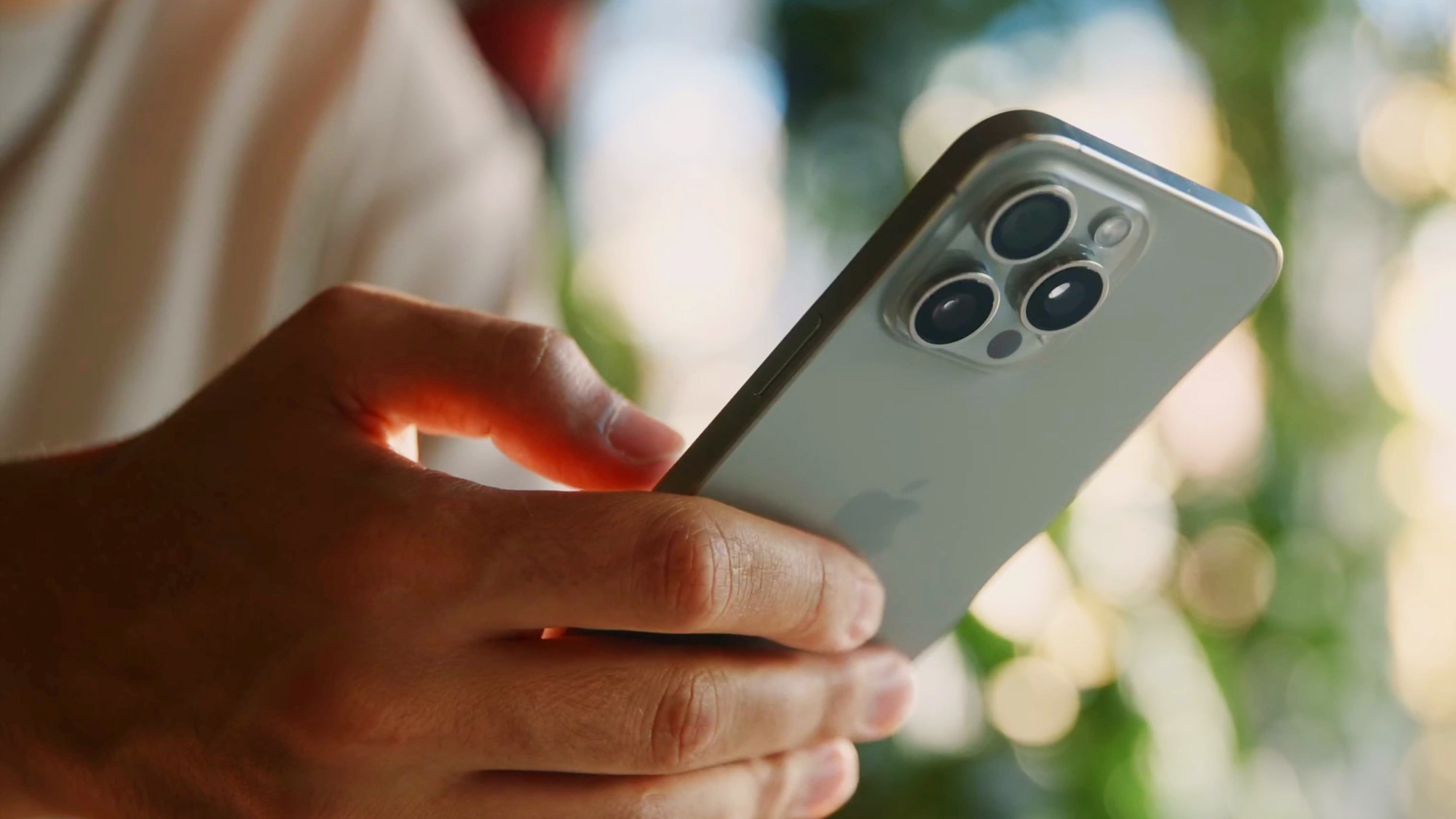Are there any benefits to using a sunrise alarm clock in summer?
How a sunrise alarm clock can help you sleep better and wake up easier, even in summer

From sleep headbands to sleep masks and viral vagus nerve stimulators, my job as a sleep tech writer means I've tried my fair share of gadgets that promise to help you fall asleep fast and sleep well through the night.
But what's the one device that I think is really worth your money? A top sunrise alarm clock. Honestly, I've asked the same question as you — is there really any benefit to using a sunrise-simulating gadget in summer when natural daylight streams through your window?
While I can't wake up without one in winter, I assumed a sunrise alarm clock would be redundant come summer. Turns out I was wrong: I'm still using my beloved Philips SmartSleep Wake-Up Light in June.
From elevating your bedtime routine to fighting morning blues, here are the benefits of using a sunrise alarm clock all year round...
What is a sunrise alarm clock?
A sunrise alarm clock is a wake-up and night light, alarm clock and sleep sound machine, all wrapped up in one gadget.
There's a sunrise alarm clock to suit every budget and bedroom aesthetic. You can get a Geuuap sunrise alarm clock for just $24.99 at Amazon or splash out on our #1 sunrise alarm clock of the year, the Hatch Restore 2 ($169.99 at Amazon), which comes with a library of sleep mediations and looks sleek on your bedside table.
Exposing you to light first thing in the morning, these bedside accessories help regulate your circadian rhythm.
This means your body will know exactly when to release and suppress sleepy hormones like melatonin, so you fall asleep fast and wake up alert.
5 benefits of using a sunrise alarm clock in summer
You don't have to pack your sunrise alarm clock away during summer. Here's how it can still help you get a good night's sleep and wake up refreshed...
1. Elevates your nighttime routine
The sunset simulation and sleep sounds including with many sunrise alarm clocks are great year-round additions to your nighttime routine.
Personally, I love using my Philips SmartSleep as a reading light before bed. It provides a warm light that gradually dims as I read, helping me feel sleepy and relaxed as I get through a chapter or two.
Get instant access to breaking news, the hottest reviews, great deals and helpful tips.
Plus I don't have to get up or reach over to turn the light off just as I'm nodding off, counteracting the sleep-inducing effects of reading. You can put it on a timer so it turns off automatically.

According to Talker Research, 49% of Gen Z and 32% of baby boomers lean on sounds to fall asleep, and this is where a sunrise alarm clock can help you fall asleep fast.
The new Hatch Restore 3 sunrise alarm clock comes with an upgraded audio library holding more than 60 sleep sounds from guided mediations to sleep podcasts, soothing domestic sounds and ASMR.
2. You can use it as a normal alarm clock
Although simulating natural light is their main purpose, sunrise alarms have audio alarms too.
Even though the gradual light increase slowly pulls you from sleep, many people, including our testers, don't wake up to light alone and need an audio alarm too.
Packed with natural alarm sounds from tweeting birds to goat sounds, or upbeat music, sunrise alarm clocks have many alarm options that help you start your day on a better note than a jarring iPhone alarm sound.
Using an alarm device separate from phone means you can follow science-backed advice and keep screens out of bed for better sleep.
Plus, you're less likely to reach for your phone first thing, which experts say is bad news for sleep. Instead of mindlessly scrolling before your head leaves the pillow, you should get natural light exposure to help regulate your circadian rhythm.
3. Useful for shift workers
People subjected to poor sleep because of shift work schedules, or anyone who needs to sleep at irregular times of day or wakes up super early, would particularly benefit from a sunrise alarm clock in summer.
Shift workers may need to block out natural daylight for them to be able to nod off during the day to prepare or recover from a night shift.
The simulated sunrise can help them wake up gradually at any time of day, preventing grogginess upon waking.

While these people can't help their circadian rhythm being out of whack, the simulated daylight will help their internal body clock understand when to be alert and when to rest, which can help lift their mood, energy levels and sleep quality.
4. Gives you consistently brighter mornings
Heavy sleepers may not be woken up naturally by light coming in through the window, especially on greyer days which, unfortunately, still occur during summer months. The added intensity of light from the sunrise alarm clock can help them wake up.
The morning light exposure also helps reinforce your circadian rhythm, especially if you're exposed to late sunsets that can delay melatonin production.
What's more, the warm colored light from the alarm clock is more likely to boost your mood than grey skies.
This is because morning light exposure boosts serotonin levels, supporting a more positive mood and reducing irritability and grogginess.
5. Helps get the kids up
You may use blackout curtains to get your kids off to sleep at a reasonable time at night throughout the summer months when daylight hours are longer, so the sunrise alarm clock can help wake them up come morning.
Plus, they’re sure to enjoy the different color light options — particularly on the affordable Momcozy sunrise alarm clock available for $49.99 at Momcozy — and fun sleep and alarm sounds included with most clocks.

Eve is a sleep tech product tester and writer at Tom's Guide, covering everything from smart beds and sleep trackers, to sleep earbuds and sunrise alarm clocks. Eve is a PPA-accredited journalist with an MA in Magazine Journalism, and has four years’ experience writing features and news. In her role as Sleep Tech Product Tester and Writer for Tom's Guide, Eve is constantly trying out and reviewing the latest sleep products from brands such as Apple, Garmin, Whoop, Hatch, Sleep Number, Eight Sleep, and Oura. A fitness enthusiast who completed the London Marathon earlier this year, Eve loves exploring the relationship between good sleep, overall health, and physical performance, and how great sleep tech can make that relationship even better.
You must confirm your public display name before commenting
Please logout and then login again, you will then be prompted to enter your display name.
 Club Benefits
Club Benefits





